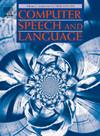Public perceptions of speech technology trust in the United Kingdom
IF 3.4
3区 计算机科学
Q2 COMPUTER SCIENCE, ARTIFICIAL INTELLIGENCE
引用次数: 0
Abstract
Speech technology is now pervasive throughout the world, impacting a variety of socio-technical use-cases. Speech technology is a broad term encompassing capabilities that translate, analyse, transcribe, generate, modify, enhance, or summarise human speech. Many of the technical features and the possibility of speech data misuse are not often revealed to the users of such systems. When combined with the rapid development of AI and the plethora of use-cases where speech-based AI systems are now being applied, the consequence is that researchers, regulators, designers and government policymakers still have little understanding of the public’s perception of speech technology. Our research explores the public’s perceptions of trust in speech technology by asking people about their experiences, awareness of their rights, their susceptibility to being harmed, their expected behaviour, and ethical choices governing behavioural responsibility. We adopt a multidisciplinary lens to our work, in order to present a fuller picture of the United Kingdom (UK) public perspective through a series of socio-technical scenarios in a large-scale survey. We analysed survey responses from 1,000 participants from the UK, where people from different walks of life were asked to reflect on existing, emerging, and hypothetical speech technologies. Our socio-technical scenarios are designed to provoke and stimulate debate and discussion on principles of trust, privacy, responsibility, fairness, and transparency. We found that gender is a statistically significant factor correlated to awareness of rights and trust. We also found that awareness of rights is statistically correlated to perceptions of trust and responsible use of speech technology. By understanding the notions of responsibility in behaviour and differing perspectives of trust, our work encapsulates the current state of public acceptance of speech technology in the UK. Such an understanding has the potential to affect how regulatory and policy frameworks are developed, how the UK invests in its AI research and development ecosystem, and how speech technology that is developed within the UK might be received by global stakeholders.
英国公众对语音技术信任的看法
语音技术现在遍布世界各地,影响着各种社会技术用例。语音技术是一个广义的术语,包括翻译、分析、转录、生成、修改、增强或总结人类语音的能力。许多技术特征和语音数据误用的可能性通常不会向此类系统的用户透露。再加上人工智能的快速发展,以及基于语音的人工智能系统正在应用的大量用例,其后果是,研究人员、监管机构、设计师和政府政策制定者仍然对公众对语音技术的看法知之甚少。我们的研究通过询问人们的经历、对自己权利的认识、对受到伤害的易感性、预期的行为以及管理行为责任的道德选择,探讨了公众对语音技术信任的看法。我们采用多学科的镜头来我们的工作,为了通过一系列大规模调查的社会技术场景呈现英国(英国)公众视角的更全面的画面。我们分析了来自英国的1000名参与者的调查反馈,这些人来自各行各业,被要求对现有的、新兴的和假设的语音技术进行反思。我们的社会技术场景旨在激发和激发关于信任、隐私、责任、公平和透明原则的辩论和讨论。我们发现,性别是与权利意识和信任相关的统计显著因素。我们还发现,权利意识与信任和负责任地使用语音技术的认知在统计上是相关的。通过理解行为中的责任概念和信任的不同观点,我们的工作概括了英国公众接受语音技术的现状。这种理解有可能影响监管和政策框架的制定方式,英国如何投资其人工智能研发生态系统,以及英国境内开发的语音技术如何被全球利益相关者接受。
本文章由计算机程序翻译,如有差异,请以英文原文为准。
求助全文
约1分钟内获得全文
求助全文
来源期刊

Computer Speech and Language
工程技术-计算机:人工智能
CiteScore
11.30
自引率
4.70%
发文量
80
审稿时长
22.9 weeks
期刊介绍:
Computer Speech & Language publishes reports of original research related to the recognition, understanding, production, coding and mining of speech and language.
The speech and language sciences have a long history, but it is only relatively recently that large-scale implementation of and experimentation with complex models of speech and language processing has become feasible. Such research is often carried out somewhat separately by practitioners of artificial intelligence, computer science, electronic engineering, information retrieval, linguistics, phonetics, or psychology.
 求助内容:
求助内容: 应助结果提醒方式:
应助结果提醒方式:


